万圣节看这本书吧,没错它刚得过文学大奖,《林肯在中阴界》
译文内容简介
今天你读书了吗?
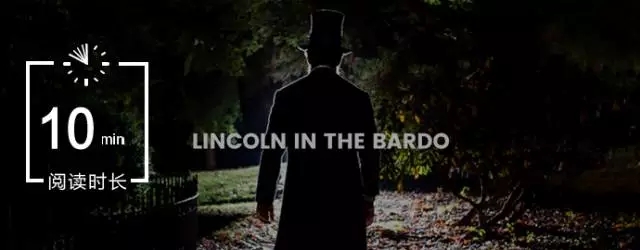
诺贝尔文学奖的热潮还没有完全消退,最近,在英语世界影响巨大的曼·布克奖(Man Booker Prize for Fiction)颁给了此奖项有史以来的第二位美国作家——乔治·桑德斯(George Saunders)。

说有史以来,是因为布克奖此前仅限于来自英联邦国家、爱尔兰及南非的用英语写作和出版的作者参选。在2014年左右,该奖遴选范围拓展成了用英语创作的、且当年在英国本土出版过的作品,当时还引起了不小的争议。
曾获得布克奖的作品,有拉什迪(Salman Ruthdie)的《午夜之子》,库切(J M Coetzee)的《迈克尔·K的生活和时代》和《耻》,伊恩·麦克尤恩(Ian McEwan)的《阿姆斯特丹》及玛格丽特·阿特伍德(Margaret Atwood)的《盲刺客》。新晋诺奖得主石黑一雄(Kazuo Ishiguro)的《长日留痕》也得过。
此次获奖,桑德斯抱走了奖杯和五万英镑的奖金(约合人民币43.6万)。
重点是,这位作家最初是学理科的,专业是地球物理工程学。

本科毕业后在油田干过,当过门卫,修过屋顶……而且他一直以来只写中短篇小说,因为中短篇写得太优秀,2013年还是《时代》杂志“全球100名最有影响力人物”。
桑德斯1958年出生于美国德克萨斯,在芝加哥长大。
1981年从科罗拉多矿业学院本科(勉强毕业,“barely”,用他的话说)毕业后,找了份石油勘测的工作:
“There was an oil-boom on, which meant that even someone like me could get work in the oil-fields. So after college I went to work in Sumatra, as a field geophysicist.”
“当时石油产业很火,连我都在印尼苏门达腊找到了油田上的石油勘测工作。”
当然也是因为在那段“集中上两周休息一周”、“驻扎在离最近的小镇也要坐40分钟直升机”的封闭工作环境中,阅读成了他唯一的乐趣。
他在个人网站上写道:
The game became filling up an entire suitcase with books sufficient to get me through the next two weeks of camp life.
我每次都努力把整个箱子都装满书,以保证我接下来的两周的扎营里有足够的书看。
他喜欢19-20世纪的俄罗斯文学大家,果戈尔、托尔斯泰、契诃夫,还喜欢马克·吐温,以及同为“极简主义”短篇圣手的海明威、雷蒙德·卡佛。
后来他申请了雪城大学(Syracuse University)的创意写作硕士学位(Master of Fine Arts in Creative Writing),不得不说读书真是改变命运!他在那里也遇上了自己的真命天女Paula Redick,两人认识不到三周就订婚了,不到三年就已经有了两个宝宝。
他毕业后做了一段科技记者,96年出版了自己的第一本中短篇集《衰退时期的内战疆土》(CivilWarLand in Bad Decline: stories and a novella),从1997年开始正式回到雪城大学教授创意写作。这个专业在国内也有,都是顶级作家在教授,比如复旦的王安忆,人大的刘震云、阎连科,北师大的莫言和清华的格非等。
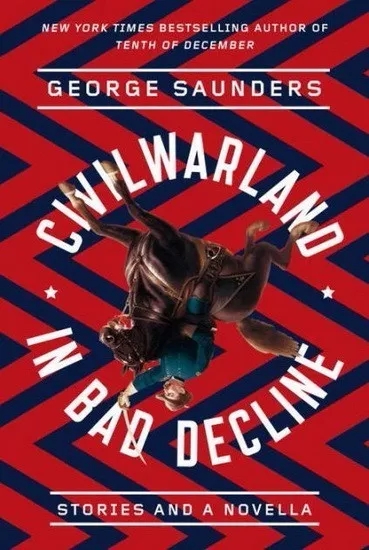
说起自己“跨越”的背景,桑德斯称为“odd background”,还说感觉很像“让焊工去设计服装”(Like if you put a welder to designing dresses.)。
之后,他就成了当代英语文学界的中短篇圣手。

作品包括:
CivilWarLand in Bad Decline,翻译为《衰退时期的内战疆土》出版
Pastoralia,翻译为《天堂主题公园》出版
Tenth of December: Stories,翻译为《十二月十日》出版
我们来试读一本,In Persuasion Nation,中的片段,讲述一个营养条和一个橙子吵架的全过程……
An orange and a Slap-of-Wack bar sit on a counter.
"I have vitamin C," says the orange.
"So do I," says the Slap-of-Wack bar.
"I have natural fiber," says the orange.
"So do I," says the Slap-of-Wack bar.
"You do?" says the orange.
"Are you calling me a liar?" says the Slap-of-Wack bar.
"Oh no," says the orange politely. "I was just under the impression, from reading your label? That you are mostly composed of artificial colors, an innovative edible plastic product, plus high-fructose corn syrup. So I guess I'm not quite sure where the fiber comes in."
"Slap it up your Wack!" shouts the Slap-of-Wack bar, and sails across the counter, jutting one pointy edge into the orange.
"Oh God," the orange says in pain.
"You've got an unsightly gash," says the Slap-of-Wack bar. "Do I have an unsightly gash? I think not. My packaging is intact, weakling."
"I have zero calories of fat," says the orange weakly.
"So do I," says the Slap-of-Wack bar.
"How can that possibly be the case?" says the orange in frustration. "You are composed of 80 percent high-fructose corn syrup."
"Slap it up your Wack!" shouts the Slap-of-Wack bar, and sails across the counter and digs its edge into the orange over and over, sending the orange off the counter and into the garbage can, where it is leered at by a perverted-looking chicken carcass and two evil empty cans of soda.
"Now you have zero of zero of zero," says the Slap-of-Wack bar.
"The Slap-of-Wack bar," says the voice-over. "For when you're feeling Wacky!"
然而因为在中短篇上(short stories and novellas)的巨大成就,除了有时也写写儿童文学之外,到某一个时刻,作家感觉自己再写就是在重复自己了。
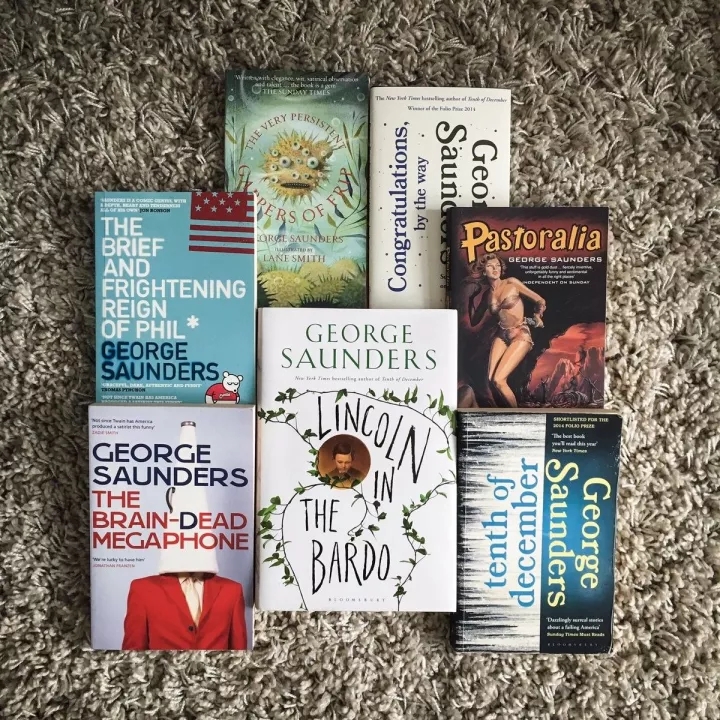
他需要突破,他需要一个长篇小说(novel),为了这个突破他已经酝酿了20年。
桑德斯说:
I tried a couple of times and it didn't work, and I just thought: Either don't do it, or wait until you've enough life to do it justice.
我其间试了好几次,都不太成功,我就想:不然就不做,要做就等到我自己能很好地驾驭它的时候。
这就是获奖的《林肯在中阴界》(Lincoln in the Bardo)。这是一部带有很强的实验性(experimental)的小说,当读者开始习惯他的叙述方式和架构的时候,方觉意犹未尽,有评论家建议别在公众场所看,“你会挂着眼泪而又忍不住大声笑出来”。
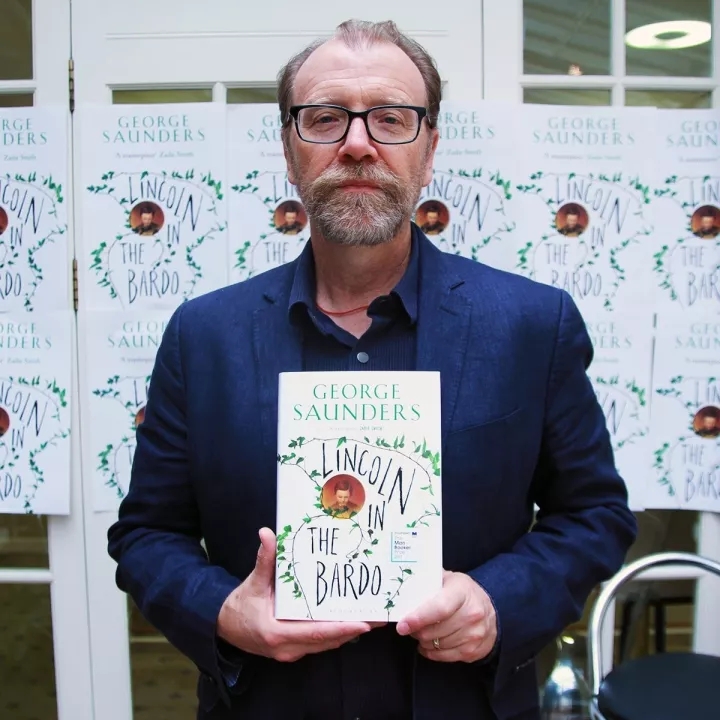
而我们介绍过的《地下铁道》的作者科尔森·怀特黑德(点此了解更多)就评论说:
Keep going, read the novel, Google later.
你可能一开始会懵,先继续读下去,待会再来百度啊。
It’s very pleasing thing to watch a writer you have enjoyed for years reach an even higher level of achievement...a luminous feat of generosity and humanism.
很高兴看到自己一直津津乐道了好多年的作家竟然在新作品中达到了更高的成就……这部作品闪耀着慷慨大度而充满人性的创作之光。
本书一直在《纽约时报》的畅销书榜上,三月的时候还是精装书周冠军。
它能从144部作品中脱颖而出,评委会主席洛拉·杨(Lola Young)是这么说的:
Gosh, the winner stands out because of its innovation, because of the way in which it’s written. One of the judges describe it as being like fireworks that light up the sky, and make you re-think how you thought about things, death and grief and bereavement, and reconciling oneself to one’s own mortality, and the mortality of others, especially the loved ones.
哇,这部作品之所以获胜是因为它的独创性,以及结构和写法。有一位评委说,这本书就像能瞬间照亮黑夜的焰火一样,它能让你思考很多东西,思考关于死亡、哀伤、失去亲人,还能让你思考和死亡的和解,你自己的,以及挚爱至亲之人的。

这部作品,嗯,它基本上是个“灵异故事”,充满试验性质的严肃文学中的“超自然”小说。
标题中的Bardo,对英语国家的人来说,也不甚熟悉。它是佛教术语,译为中阴或中有,指人死后与进入轮回之前的中间状态。
"Intermediate state" between death and reincarnation when the soul is not connected to a body.
桑德斯正在修行藏传佛教中宁玛(Nyingma)一派。但是选这个词,又在文中混了古埃及等元素,是因为:
Partly to help the reader not to bring too many preconceptions to it... in a book about the afterlife, it's good to destabilize all of the existing beliefs as much as you can.
在这本关于往生的书中不想让读者带着太多的既定观念来看……想尽量破坏一些既有概念带来的平衡感。
他这样写道:
许多年前,我在华盛顿特区开车经过Oak Hill公墓时,同在车上的表妻弟指着山上一块地穴说了一段关于林肯总统的逸闻。那是1862年2月,南北战争胶着之际,林肯年仅11 岁的爱子威利(Abraham Lincoln's son William "Willie" Wallace Lincoln)溘然病逝,林肯陷入无尽的悲痛之中。葬礼结束后,传说林肯数次独自返回Oak Hill墓地的地穴,抱起他死去孩子的尸体,陷入悲痛久久不能回神……
Many years ago, during a visit to Washington DC, my wife's cousin pointed out to us a crypt on a hill and mentioned that, in 1862, while Abraham Lincoln was president, his beloved son, Willie, died, and was temporarily interred in that crypt, and that the grief-stricken Lincoln had, according to the newspapers of the day, entered the crypt "on several occasions" to hold the boy's body…
这个场面和故事一直萦绕在我的脑海中二十余年,难以忘怀。我很害怕去尝试如此深刻的一个话题,直到2012年,突然意识到我不再年轻了,不想成为最后别人需要在墓碑上刻着“一直害怕尝试某项让他胆怯但又一直心心念念的艺术项目”的那位可怜的作家,我决定开始以探索性的方式来做。
I carried that image around for the next 20-odd years, too scared to try something that seemed so profound, and then finally, in 2012, noticing that I wasn't getting any younger, not wanting to be the guy whose own gravestone would read "Afraid to Embark on Scary Artistic Project He Desperately Longed to Attempt", decided to take a run at it, in exploratory fashion, no commitments.”
桑德斯花了很长时间作调查和研究。“怎么去写好这个话题”,一直是个问题。
他写道:
For example: I loved the idea of Lincoln, alone at night in the graveyard. But how is a novel made from one guy in a graveyard at night? Unless we want to write a 300-page monologue in the voice of Lincoln (“Four score and seven minutes ago, I did enter this ghastly place”) or inject a really long-winded and omniscient gravedigger into the book (we don’t, trust me, I tried), we need some other presences there in the graveyard.
比如我喜欢林肯独自一人在墓地的感觉,但该如何写好呢?想写一个300页的林肯独白么?或者植入一位上帝视角的掘墓人的长故事?相信我,这些我都试过。我们此处需要更多别的角色。
Is this a problem? Well, it sure felt like one, back in 2012. But, as new age gurus are always assuring us, a “problem” is actually an “opportunity”. In art, this is true.
这是个问题吗?这个问题对2012年的我来说很严重。我想起来新时代的鸡汤大师都说:“此处出现的一个难题,正好也呈现了一个很好的新机遇”。在艺术界,我觉得这是对的。
In this case, the solution was pretty simple – contained, joke-like, in the very statement of the problem (“Who else might be in a graveyard late at night?”).
这样,解决方法比较简单,满意地、开玩笑似地提出一个新问题:“还有谁能在那晚上的墓地出现啊?”
So: the book would be narrated by a group of monologuing ghosts stuck in that graveyard.
好吧,这个小说看来就是要由一群自言自语的灵魂们来讲述了。
And suddenly what was a problem really did become an opportunity。
鸡汤显灵,一个难题真的变成了一个新机遇。
这样在文中发声的角色有166个。桑德斯很喜欢自己朗读把文章变成有声书(audible books),这次需要请大量的帮手了。
小说聚焦林肯痛失爱子的那一晚,小威利徘徊于“中阴界”的灵魂来到了墓地,有三位主要讲述者,他们带着读者进入这个世界,然后大家都来了。
小说几乎全部由对话构成,除了这些灵魂的对话,也包含了一些历史文本,信件、日记、新闻、个人证词以及后来的学术文本,它们有些是互相矛盾的,有些甚至是桑德斯自己杜撰的。
An extended series of brief quotations from letters, diaries, newspaper articles, personal testimonies and later scholars, each one meticulously attributed.
读起来是这样的:
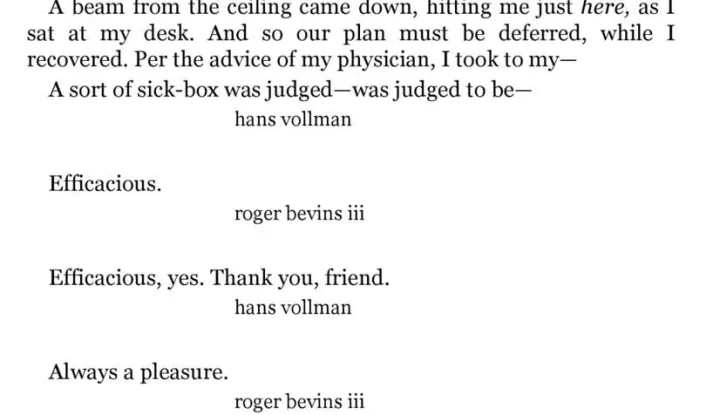
一段梁木从天花板上落下来,就砸在我这里,我正坐在自己的办公桌前。因此,在我康复期间,我们的计划非得推迟不可。根据医生的建议,我躺入了我的——
一种所谓的病匣,被认为——认为是——
汉斯·福尔曼
疗效甚佳。
罗杰·贝文思三世
疗效甚佳,是的。多谢多谢,老兄。
汉斯·福尔曼
不胜荣幸。
罗杰·贝文思三世
专家都说了,习惯了这种结构,就能读出意味来。
这让我忽地想起余华2013年出版的《第七天》,该书描写了主角死后七天所见所闻的故事,当时争议颇大,不少人质疑余华大师的作品是在生搬微博逸闻杂闻。
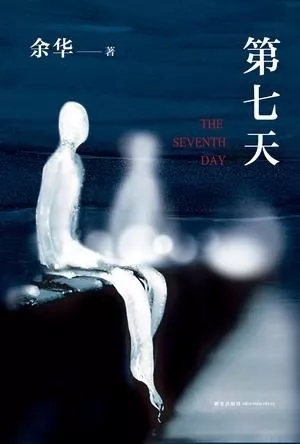
开头让人为之一震:
“浓雾弥漫之时,我走出了出租屋,在空虚混沌的城市里孑孓而行。我要去的地方名叫殡仪馆,这是它现在的名字,它过去的名字叫火葬场。我得到一个通知,让我早晨九点之前赶到殡仪馆,我的火化时间预约在九点半。
昨夜响了一宵倒塌的声音,轰然声连接着轰然声,仿佛一幢一幢房屋疲惫不堪之后躺下了。我在持续的轰然声里似睡非睡,天亮后打开屋门时轰然声突然消失,我开门的动作似乎是关上轰然声的开关。随后看到门上贴着这张通知我去殡仪馆火化的纸条,上面的字在雾中湿润模糊,还有两张纸条是十多天前贴上去的,通知我去缴纳电费和水费。”
结尾也很悲凉:
“他惊讶地向我转过身来,疑惑的表情似乎是在向我询问。我对他说,走过去吧,那里树叶会向你招手,石头会向你微笑,河水会向你问候。那里没有贫贱也没有富贵,没有悲伤也没有疼痛,没有仇也没有恨……那里人人死而平等。
他问:“那是什么地方?”
我说:“死无葬身之地。”
我想说我们的余大师是不是严重启发了英语世界的短篇圣手阿,而人家真的就把19世纪当时的文字片断(就像现在的微博微信?)拼出了一个有序感人的大长篇。(纯属胡乱联想)
林肯在许多美国人眼里是最伟大的一位总统。
怀特黑德说,在这一晚,林肯得走出悲伤的父亲的角色,走出痛失爱子的哀伤,在整个国家濒临崩塌之前,重新做回整个国家之父。
Abraham Lincoln must stop being the father to a lost boy and assume his role as a father to a nation, one on the brink of cataclysm, says Whitehead.

桑德斯熬了20年的首部长篇修成正果,他对《金融时报》说,也可以把这本小说看成一部超级乐观的关于个人的成长和变化的各种可能性的作品。
Lincoln in the Bardo can also be read as a deeply optimistic novel about the possibility of self-knowledge and personal change.
就好像新买一套房子,但是已有的粗装修风格你不喜欢,然后你就每天换一样你喜欢的装饰或摆设,某一天你突然抬头,发现房子变成了出乎意料的你喜欢的样子。
“It’s almost like if you had an apartment that someone had decorated generically and then, every day, you took out one thing and replaced it with something you like better,” he says. “At some point you look up and you have this form that you couldn’t have thought of in advance but has evolved to meet the emotional needs of the book.”
浙江文艺出版社早在2016年底本书英文版尚未出版时,就已取得简体中文版的版权。目前本书中文译稿已经完成,预计2018年出。
下面为大家献上《林肯在中阴界》一段中英文对照试读。(卢肖慧 译)
On our wedding day I was forty-six, she was eighteen. Now, I know what you are thinking: older man (not thin, somewhat bald, lame in one leg, teeth of wood) exercises the marital prerogative, thereby mortifying the poor young—
我们成婚那日,我四十六,她十八。这下,我知道你会怎么想了:年纪大得多的男人(不瘦,略秃,瘸着一条腿,几颗木牙)行使婚姻特权,因此让那可怜的年轻妻子受辱——
But that is false.
然而,错矣。
That is exactly what I refused to do, you see.
那恰是我拒绝做的事情,你瞧。
On our wedding night I clumped up the stairs, face red with drink and dance, found her arrayed in some thinnish thing an aunt had forced her into, silk collar fluttering slightly with her quaking—and could not do it.
在我们新婚初夜,我拖着重重的脚步走上楼,因为醉酒和跳舞脸色泛红,发现她穿着件轻薄如蝉翼的什么东西,是她一个姑姑硬逼她穿上的,丝绸衣领随着她的颤栗而轻轻抖动——不能那么干。
Speaking to her softly, I told her my heart: she was beautiful; I was old, ugly, used up; this match was strange, had its roots not in love but expedience; her father was poor, her mother ill. That was why she was here. I knew all of this very well. And would not dream of touching her, I said, when I could see her fear and—the word I used was “distaste.”
我温存地跟她说话,我告诉她我的真心:她美丽;而我,老,丑,且心力交瘁;这段婚事是不配的,不是本着爱而是为了利;她父亲穷愁潦倒,她母亲患着病。这就是她在此地的缘故。我对此非常明白。当我看出她的害怕——我的措辞是“厌恶”——时,我说,并不会奢望去碰她。
She assured me she did not feel “distaste” even as I saw her (fair, flushed) face distort with the lie.
她向我保证说她并没觉得“厌恶”,尽管我瞧见她那张(清纯的,双颊绯红的)脸因为说谎而扭曲。
I proposed that we should be…friends. Should behave outwardly, in all things, as if we had consummated our arrangement. She should feel relaxed and happy in my home and endeavor to make it her own. I would expect nothing more of her.
我建议说我们应当做……朋友。任何事情,都应当不藏不瞒,就象我们已经圆了房那样。她应当轻松愉快地在我的家里过日子,努力把这里当成她自己的家。而我则会对她别无他求。
And that is how we lived. We became friends. Dear friends. That was all. And yet that was so much. We laughed together, made decisions about the household—she helped me bear the servants more in mind, speak to them less perfunctorily. She had a fine eye and accomplished a successful renovation of the rooms at a fraction of the expected cost. To see her brighten when I came in, find her leaning into me as we discussed some household matter, improved my lot in ways I cannot adequately explain. I had been happy, happy enough, but now I often found myself uttering a spontaneous prayer that went, simply: She is here, still here. It was as if a rushing river had routed itself through my house, which was pervaded now by a freshwater scent and the awareness of something lavish, natural, and breathtaking always moving nearby.
我们就是这样过日子的。我们成了朋友。亲密的朋友。没别的。然而,那却又是那么地丰富。我们一起笑,一起决定日常起居的事情——由她帮着,我事事更替仆人们着想,跟他们说话也不再那么潦草打发了。她趣味高雅,成功地完成了室内装修,而花费却只是预期开销的一个零头。我每每踏进门时,就看见她快乐起来;我们讨论家居事务时,我发现她会侧身向我靠过来;我简直无法说清她是怎样地改变了我的人生啊。我很幸福,够幸福的了,但现在我常常发现自己情不自禁地低声祷告,就是这样:愿她在此地,愿还在此地。就仿佛一条哗哗奔涌的河自己取道流过我的家,家中如今充满水的清新气息,我总是意识到有某种慷慨的、自然的、激荡人心的东西在身边流淌。
At dinner one evening, unprompted, before a group of my friends, she sang my praises—said I was a good man: thoughtful, intelligent, kind.
一天晚餐时,她在我的一大群朋友面前,竟主动地对我赞美了一番——说我是个好人,体贴,睿智,厚道。
As our eyes met I saw that she had spoken in earnest.
当我们四目相对,我看出来她说的是心里话。
Next day, she left a note on my desk. Although shyness prevented her from expressing this sentiment in speech or action, the note said, my kindness to her had resulted in an effect much to be desired: she was happy, was indeed comfortable in our home, and desired, as she put it, to “expand the frontiers of our happiness together in that intimate way to which I am, as yet, a stranger.” She requested that I guide her in this as I had guided her “in so many other aspects of adulthood.”
翌日,她在我的书桌上留了一张签条。尽管羞涩阻止了她用语言或行动表达这份情思,签条上这么说,我对她的宽厚,产生了心有所望的效果:她很快乐,在我们的家里,她确实相当安适自在,并且渴望,她是这么写的,要“以彼此亲密无间的,于我,尚为陌生的方式,拓展我们俩共同幸福生活的新疆域。”她要求我在这件事情上引导她,就像我在“其他诸多方面引导她进入成年世界”那样。
中国作家和布克奖也有很深渊源。原因是主营投资管理的曼氏集团另有一项布克国际奖,The Man Booker International Prize for Fiction。此前为两年一评,致敬某位作家的所有作品,但后来改成一部在英国出版过的翻译作品。
不少中国作家入围,比如王安忆和苏童在2011,以及阎连科在2013、2016、和2017。
此外还有一项曾经在2007-2012年间出现过的曼氏亚洲文学奖(The Man Asian Literary Prize),有英语译本或用英语创作的亚洲作家都可入选。
姜戎、苏童、毕飞宇都曾获此奖项,入围的中国作家更是群星闪耀,比如铁凝、莫言、余华、韩东。
如今正好此亚洲奖项停驻的五年后,中国的出版和写作在海外取得了更大的影响力,随着一带一路倡议,有更多更好的新译本像带着翅膀一般,走近了更多的国家和读者;我们不再眼巴巴盯着少数几个“国际”奖项,因为在这五年里,中国作家斩获了诺贝尔文学奖、雨果奖,以及安徒生奖。让读书的我们喜悦不断。
奖项助推市场潮流的风气仍在,但我相信,读者会有更好的眼光和品位。
[注:文章转载自公众号,其版权属于作者所有,如涉及版权问题,请与我们联系admin@jooyee.com,谢谢!]



热门评论